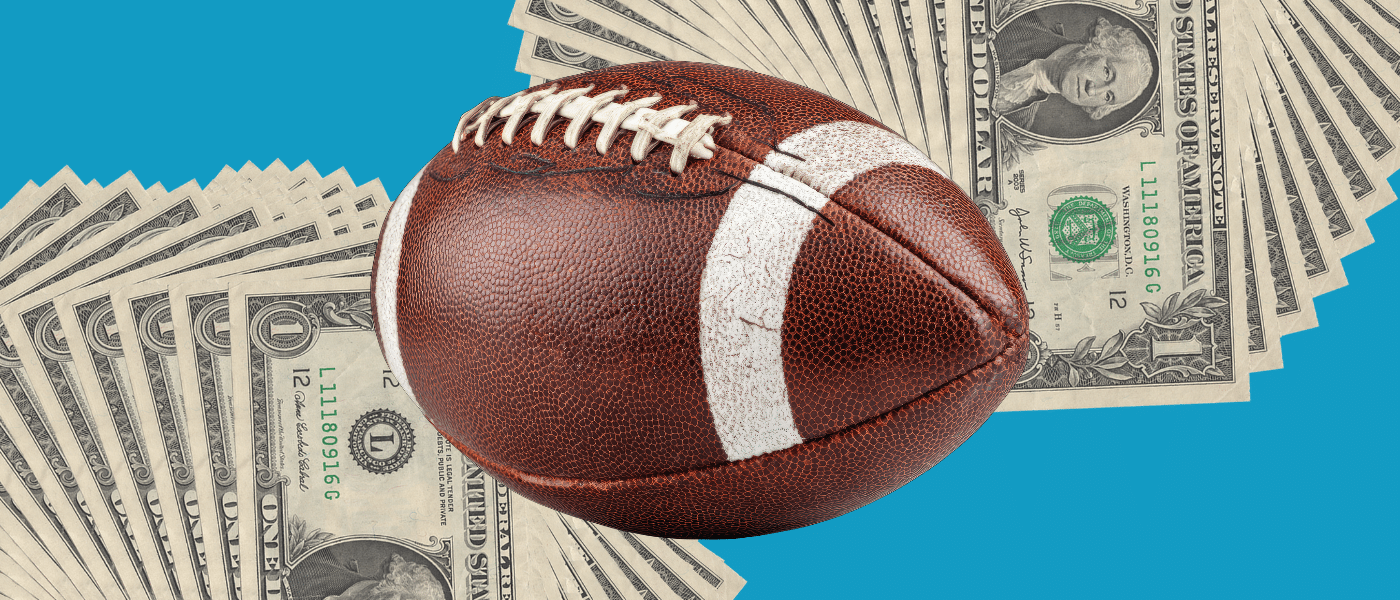Key Takeaways
- Tribal loans are high-interest, short-term loans offered by lenders operating under tribal law, which allows them to bypass state regulations and potentially charge much higher rates with fewer consumer protections.
- While they offer quick access to cash and easier approval for borrowers with poor credit, tribal loans often carry risks like excessive fees, rollover practices, and cycles of debt that can be difficult to escape.
- Borrowers should carefully review loan terms, compare alternatives such as personal installment loans or credit union loans, and avoid lenders promising guaranteed approval to prevent falling victim to predatory lending practices.
Tribal loans are short-term, high-interest loans offered under Native American tribal law, not state rules. They provide fast access to cash when traditional lenders might turn you away, but their terms and protections differ from standard loans like installment loans.
These loans are designed to be quick and accessible, often requiring minimal loan documents, which can make them appealing in a financial pinch. However, it’s important to carefully review interest rates, fees, and repayment terms to avoid getting trapped in a cycle of debt and to ensure the loan truly meets your needs.
What Are Tribal Loans?
Any loan offered by a tribe-owned institution or offered to tribal members living on a reservation could be considered a tribal loan. The tribal lending industry can include banks or other types of indirect or direct lenders. These can also serve residents of Alaska Native villages in certain circumstances.
Many of these loans are marketed as loans for borrowers who usually use payday loans for financial emergencies. In fact, the most common type of consumer lending undertaken by tribal lenders are payday loans or similar loan types.
Are Tribal Loans Legal?
Yes, Tribal Loans are legal. Tribal loan lenders operate under “tribal sovereign immunity.” This means that they create and enforce their laws within the reservation. So if you default on a tribal loan, you may be required to handle the matter in a tribal court.
Tribal sovereign immunity also means that tribal loan lenders don’t have to abide by the state laws that regulate financial products and lenders. This could mean that a tribal lender can charge whatever interest rate they see fit. In short, tribal installment loans are legal because they are offered outside of the normal state and local laws for loans and lenders.
How Do Tribal Loans Work?
Tribal loans operate in a similar way to other short-term loans designed for low credit borrowers. The loan process varies depending on the type of loan and the specific lender, but you’ll likely encounter the following steps:
- Fill out an application, either online or in person.
- Await a decision from the lender in question.
- If approved, they will provide you with the agreed-upon amount of money. (With online tribal loans, you may be able to get the funds sent to an active bank account).
- Your repayment will begin on a specified date.
- After all your payments have been made, the agreement is complete.
How Do You Get a Tribal Loan?
You can get a tribal loan by either applying online or in person. Many tribal lenders now offer loans online, with application forms that are simple to complete and often processed quickly. You will typically need the following to apply:
- A valid form of identification
- Proof of income
- An active bank account
- Proof of residency
- A credit check to check your credit history.
Will Tribal Lenders Check Your Credit?
Much like any other type of loan, this will likely depend on the specific lender. Some may need to run a credit check, and some may not. Although, it’s essential to understand what it means when a lender checks your credit.
If a lender isn’t interested in checking your credit, it might be a red flag (although these loans, which are considered no credit check loans, may be the only exception).
Checking a borrower’s credit usually means that the lender is interested in getting their money back on time. If a lender doesn’t run a credit check, it might mean that they make more money on late fees and rollover than borrowers who pay on time. Most credible, trustworthy, and best tribal loan lenders will want to check their borrowers’ financial histories.
What Happens If You Can’t Pay My Tribal Loan Back?
Failing to pay back a tribal loan will likely be similar to failing to pay back a payday loan or any other type of loan. Defaulting on a loan leads to additional fees and interest, loan rollover, and could potentially lead to garnished wages. Additionally, default can impact your credit score, which can take a good credit score and turn it into bad credit. And it will be a part of your credit history for several years.
Many payday lenders, and some tribal lenders, may use something called “rollover.”
Loan rollover is when the lender extends your loan term, allowing you more time to repay the initial loan while also adding more fees and interest. Rollover can make it challenging to repay the loan, as it tends to lead to a cycle of debt that’s difficult to escape. This can even lead to multiple loans at once. And you don’t want to have to pay off multiple payday loans.
What to Watch Out for With Tribal Loan Companies
The biggest thing to watch out for when dealing with tribal loan lenders would be tribal loans. Any payday loan should only be used as an absolute last resort. They tend to come with very high rates and short repayment terms.
If you need to use a tribal loan option, make sure to very carefully review the loan agreement. You must be aware of all the fees and terms before signing the loan agreement. And it’s wise to avoid any loan unless you know that you can repay it on time.
What Are the Pros and Cons of Tribal Installment Loans?
Here’s a quick breakdown of the pros and cons of tribal loans:
| Aspect | Pros | Cons |
| Accessibility | Easier approval for borrowers with poor credit or no credit history. | Often targets financially vulnerable individuals, leading to cycles of debt. |
| Speed | Funds can be disbursed quickly, sometimes within 24 hours. | Quick access can encourage impulsive borrowing without fully understanding terms. |
| Regulatory Exemption | Operates under tribal sovereignty, not state lending laws, allowing flexibility in loan offerings. | Exemption means loans may bypass consumer protection laws—rates can be extremely high (sometimes over 500% APR). |
| Credit Check Requirements | May not require a traditional credit check. | Lack of checks increases risk of over-borrowing and long-term financial strain. |
| Loan Approval Odds | Higher approval rates than banks or credit unions. | Terms are often unclear or buried in complex language, making it easy to miss hidden fees. |
| Repayment Structure | Flexible repayment arrangements advertised. | “Flexibility” often hides extended repayment periods that drastically increase total repayment amounts. |
The Difference Between Tribal Loans and Instalment Loans
Tribal loans and installment loans are both short-term loans, often designed for people with poor or no credit. Some differences between tribal loans vs installment loans are their origins and regulatory oversight. Tribal loans are offered by lenders owned by Native American tribes, and these lenders operate under tribal sovereignty. In contrast, installment loans are offered by conventional lenders and are subject to stricter state and federal regulations.
Tribal Alternatives
Tribal loans may offer quick cash, but it’s crucial to weigh the pros and cons of any loan agreement before signing it.
Generally, it’s not financially wise to take out a payday loan since they come with such high rates. Payday lenders sometimes use predatory tactics like hidden fees to make more money from borrowers.
If you’re considering tribal lenders that offer installment loans with decent interest rates and favorable terms, then go for it! But we wouldn’t recommend any type of payday loan.
Personal Installment Loans
A personal installment loan is a loan that borrowers repay through monthly payments. Most applicants get funding in as little as one business day. Personal loans offer higher maximum loan amounts and more extended repayment periods, which makes them much more manageable than payday options.
Credit Union Loans
A credit union is similar to a bank, but it’s a nonprofit organization. Credit unions typically offer better interest rates and terms compared to other financial institutions. To qualify for membership, you must meet specific requirements, such as living in a specific area or working in a specific field.
FAQS About Tribal Loans
Can you tell me about the interest rates for tribal loans?
Tribal loan interest rates can vary depending on the lender and the type of loan. Tribal lenders operate under tribal sovereign immunity, which means they are not bound by state laws that regulate interest rates. It’s essential to carefully compare your loan options before accepting a tribal loan.
How can I prevent fraud when dealing with tribal loans?
Tribal loan fraud prevention is crucial for a safe borrowing experience. Here are some tips to help you avoid potential scams and only inquire about reputable tribal lender options:
Report suspicious activity — If you encounter anything suspicious, report it to your local authorities or the Federal Trade Commission.
Avoid guaranteed tribal loans — Legitimate financial institutions won’t offer guaranteed approval. And so if you see indirect or direct lenders that offer guaranteed tribal loans, it’s best to avoid them.
Where can I find resources on bad credit tribal loans?
Finding reliable resources on tribal loans can help you make an informed decision. You can start by:
Reading online reviews and guides — Websites that review financial products may have sections dedicated to tribal loans, offering comparisons, reviews, and user experiences.
Checking Government Websites — Some federal government agencies provide information on alternative lending options, including tribal loans, and may have resources to help you understand your rights and responsibilities.
Can non-Native Americans apply for tribal loans?
Yes, non-Native Americans can apply for tribal loans, as many tribal lenders offer their services online to a broader audience.
Tribal loans, tribal installment loans, bad credit loans, personal loans, etc., are available for non-Native Americans to inquire about. These tribal loan companies may be indirect or direct lenders. Direct lenders provide loans themselves, while indirect lenders connect people to a network of lenders.
Figuring Out Your Best Loan Option With CreditNinja
No matter what type of loan you’re considering, it’s essential to compare lenders. Along with this, try and focus on improving your credit score and becoming debt free. There are many ways to do this, including learning to budget properly, saving money, and expanding your financial knowledge. The CreditNinja Dojo has some resources to help!
FAQS About Tribal Loans
Can you tell me about the interest rates for tribal loans?
Tribal loan interest rates can vary depending on the lender and the type of loan. Tribal lenders operate under tribal sovereign immunity, which means they are not bound by state laws that regulate interest rates. It’s essential to carefully compare your loan options before accepting a tribal loan.
How can I prevent fraud when dealing with tribal loans?
Here are some tips to help you avoid potential scams and only inquire about reputable tribal lender options:
Report suspicious activity — If you encounter anything suspicious, report it to your local authorities or the Federal Trade Commission.
Avoid guaranteed tribal loans — Legitimate financial institutions won’t offer guaranteed approval. And so if you see indirect or direct lenders that offer guaranteed tribal loans, it’s best to avoid them.
Where can I find resources on tribal loans?
Here are some ways to find resources on tribal loans:
Reading online reviews and guides — Websites that review financial products may have sections dedicated to tribal loans, offering comparisons, reviews, and user experiences.
Checking Government Websites — Some government agencies provide information on alternative lending options, including tribal loans, and may have resources to help you understand your rights and responsibilities.
Can non-Native Americans apply for tribal loans?
Yes, non-Native Americans can apply for tribal loans, as many tribal lenders offer their services online to a broader audience.
Tribal loans, tribal installment loans, bad credit loans, personal loans, conventional loans, etc., are available for non-Native Americans to inquire about. These tribal loan companies may be indirect or direct lenders. Direct lenders provide loans themselves, while indirect lenders connect people to a network of lenders.
Figuring Out Your Best Loan Option With CreditNinja
No matter what type of loan you’re considering, it’s essential to compare lenders. Along with this, try and focus on improving your credit score and becoming debt free. There are many ways to do this, including learning to budget properly, saving money, and expanding your financial knowledge. The CreditNinja Dojo has some resources to help!
References:
1. New Article in ABA Trade Journal Article on Tribal Payday Lending | Turtle Talk Blog
2. The Consumer Financial Protection Bureau and Tribal Lending | Suffolk University Law School
Matt Mayerle is a Chicago-based Content Manager and writer focused on personal finance topics like budgeting, credit, and the subprime loan industry. Matt has a degree in Public Relations and has been researching and writing about financial literacy and personal finance since 2015, and writing professionally since 2011.






